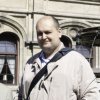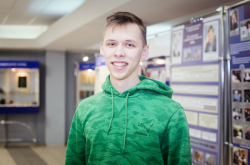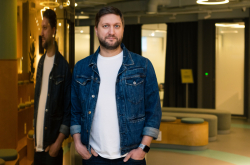From physics to programming
You studied at ITMO back in the ‘90s, when it was still called St. Petersburg Institute of Fine Mechanics and Optics. Why did you choose it?
When I enrolled at ITMO in 1994, I chose it mostly because both my father and my grandfather went there – and it was also really close to my home. That’s why it was very convenient to go or, in my case, mostly not go to classes (laughs). Yes, I preferred books to lectures. In my opinion, you learn best when you have a book, a practical problem, and an experienced advisor who can help with understanding and applying the knowledge acquired from the books. I am working from home even how, having switched to this mode long before the virus struck.
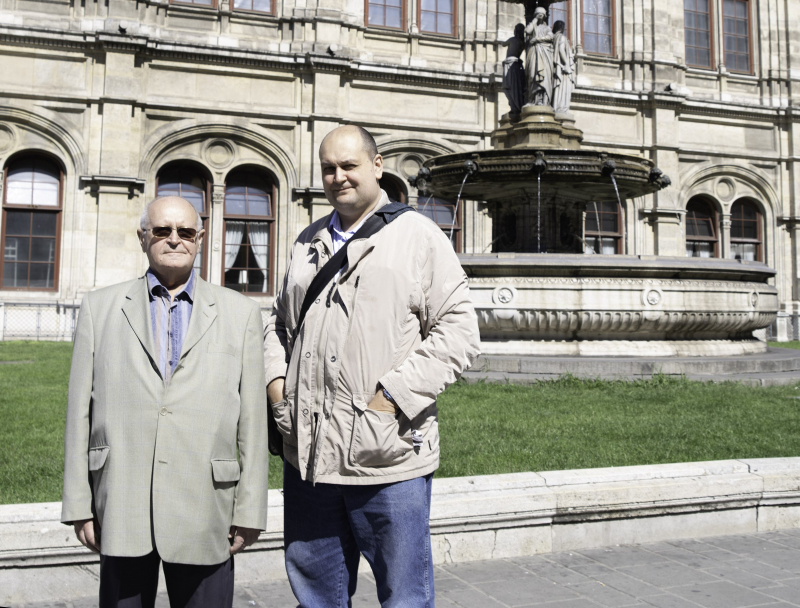
Was there something memorable over your years at ITMO? What did you gain as a professional?
The university is known for its strong courses in maths. There was also a great choice of subjects in my field that offered a considerable overview of practical issues and their solutions. As for the drawbacks, for me it was theoretical physics. We didn’t pay as much attention to it, and the Landau and Lifshitz coursebook is rather short, dry and a tad dogmatic; it was better as a supplementary reading. At the same time, a crowd of programmers was already accumulating around ITMO; for instance, there was a Mail.Ru server right at the entrance that was developed by DataArt, a company I had been working at since my third year. There was a great team full of enthusiasm and tons of projects, many of which turned out to be really successful in Russia. You have once interviewed Dmitriy Andrianov, who also works at DataArt. I left the company with a heavy heart but I didn’t want to be just a programmer.
As far as I know, you studied to be a programmer and not a physicist?
Almost any job these days involves a certain degree of programming. Even experimental physicists in the industry spend enough of their time writing scripts for their equipment. I am an engineer-developer now, though I started at the Department of Laser Technologies, which would be classified as electrical engineering in the US, where I got my PhD in theoretical physics.
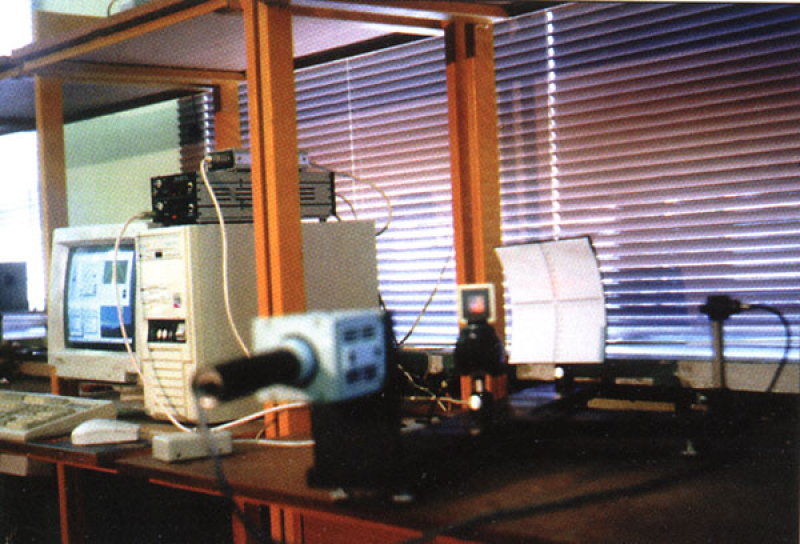
“Nowadays academia is a lot like figure skating”
After graduating from ITMO, you went to get your PhD in the US. How did you do that given that academic mobility in Russia was not as intense as now?
It was just a regular newsletter. I was surfing the internet and saw that foreign citizens were being accepted for a PhD in the US. I didn’t know anything else, I didn’t have anyone I could ask, so I started sending letters and taking all the standard exams. It quickly became clear that the program was different, so I had to fill in the gaps on my own. Two universities accepted me – Northwestern University in Chicago and McGill University in Canada. I chose the first one, honestly, because I was offered a larger scholarship there. And it turned out to be the right decision, although I had no idea how my studies would be set up. At Northwestern, I studied several topics: semiconductors, Bose–Einstein condensate, and nonlinear optics. This inconsistency had to do with the fact that my supervisor had a tendency to start projects outside the topic that he had a reputation in, so it was hard to get funding. On the other hand, the projects were always really interesting and fundamental. I ended up studying magnetism; during those studies, we were lucky to create the theory of the Microwave-Assisted Magnetic Recording (MAMR) effect. This year, a version of this effect started to be applied in hard drives – and it was this project that later on earned me a job at Seagate.
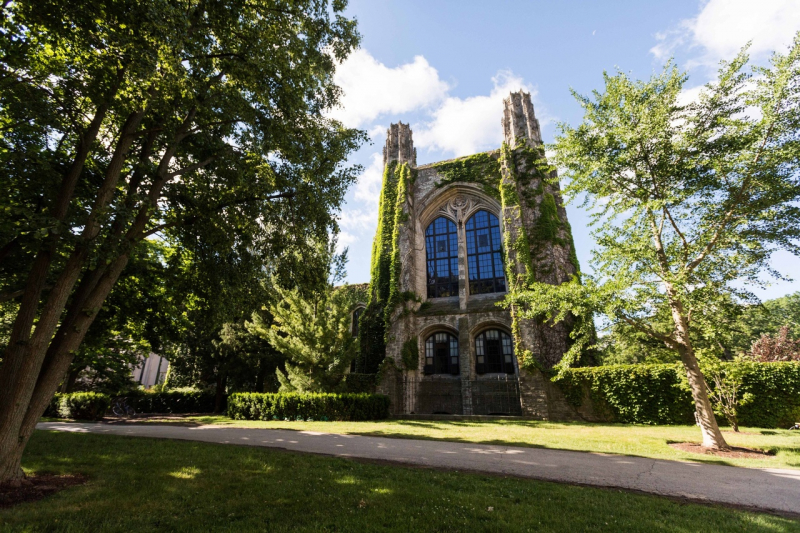
And how was the academic process in the States different from the one at a post-Soviet university, apart from the equipment?
Well, I am a theoretical physicist, so all the equipment I need is a piece of paper and a computer. It’s hard to say what’s different about the Western system because it is different in different universities. If we are talking about your average standard, then the first thing is how there are less subjects but they are taught more fundamentally. At ITMO we had a lot of classes with pass/fail tests (a less strict assessment method than exams – Ed.), whereas there is no such thing at an American university. There is a good and a bad side to everything, but learning your fundamental disciplines together with seven other subjects can lead to problems. Otherwise, it all depends on a particular university. At an average American uni, many professors are seen first of all as lecturers, while students are not as motivated to study. At top universities, students are highly driven and it’s not rare to have a class taught by a researcher who is reluctant to read lectures.
What was your next step?
After I got my PhD, it became clear that I didn’t want to remain in academia. Nevertheless, I decided to give myself the chance to make sure I was right, so I spent ten months as a postdoc researcher. As a result, I only became certain in my decision.
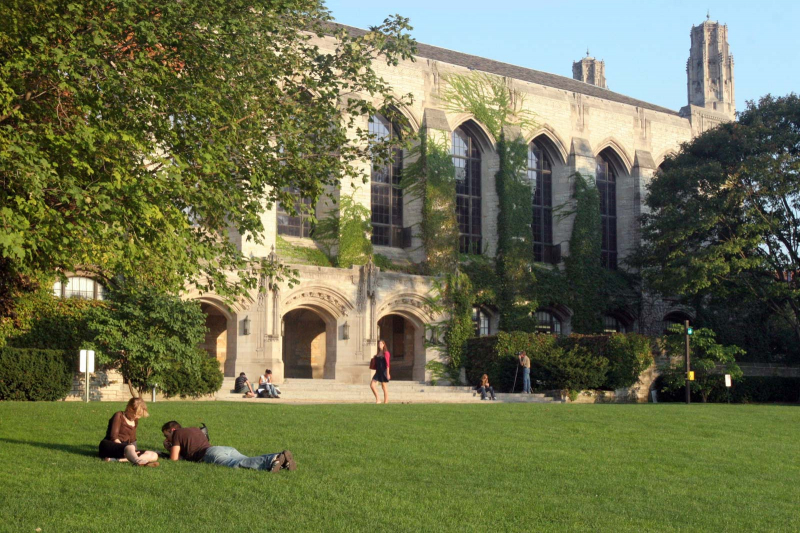
Why?
I must warn you that this answer will be coming from someone who failed in academia, so don’t expect it to be objective. Compared to the industry, a job in academia gives you one important advantage: you can study certain chapters of your main topic which you find most interesting even if they are not connected to any particular practical applications or powerful effects. As far as it’s new, you can do it. There is no such possibility in the industry.
The negative side of academia these days is that it is a lot like figure skating. To put it roughly, when you are seven, you have to go to a special school focusing on maths and physics. If you don’t do it, you don’t have the connections that will be crucial later. They determine whether your papers get cited and published, whether you get jobs and funding. Each year of your academic career is strictly delineated in certain stages. By the time you are twenty, you have to publish an article in a specific journal with a certain citation index. By the time you are twenty-five, it has to be in Physical Review Letters or Nature. To achieve that, you have to be working with a reputable research group on a topic that is deemed important by your community. You can’t just isolate yourself, do the topic of your own choice, and then count on employment. When you are a postdoc, where contracts sometimes have to be renewed annually, there are almost no opportunities for free flight. It has turned into a strict sport, nothing like the research of the 19th or early 20th century.
We want to revolutionize the microprocessors and electronics
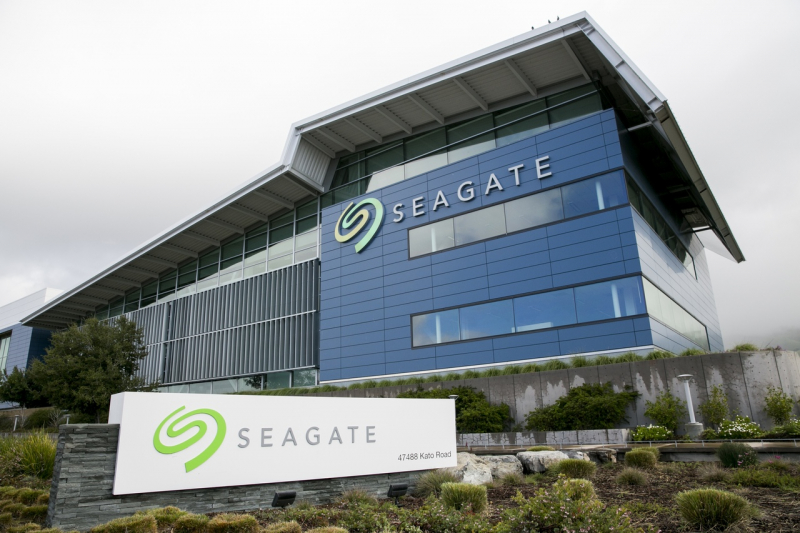
What did you set on instead?
Mostly thanks to my publications, I got an offer from Seagate Technology. At the time, it was a wonderful company with an incredible team of engineers from various companies acquired by Seagate. I was lucky enough to work with people who created hard drives.
Naturally, I learned a lot, and I am proud to say that I grew rapidly among such people. Although, the peak of my vanity as a leading engineer only lasted a couple of days, as my team at work was destroyed, most of my colleagues were fired, and I became just a regular engineer. And I had been occupying this post until last year, when I left the company to start my own business. I am now consulting, naturally, first of all, Seagate’s competitors, such as Sandisk, and founded my own company.
You spent 12 years at Seagate, from 2007 to 2019, and you are now consulting other companies. What are the key things that set aside the corporate culture of the American high-tech firms?
It all depends on the company. For instance, IBM is an academic culture in an industrial setup. And Western Digital used to be a lot like fintech in physics. It’s hard to say if there is some sort of shared American corporate culture.
Companies are a lot like states in the 17th-18th centuries. There is a monarch (CEO) with parties competing around them. Each party stands for a certain plan of development, has its supporters and its inner hierarchy. But if a party gets slaughtered, every member is affected and after that it’s practically impossible to make a career in that company.

You launched your startup in 2019. What is the company and what do you do?
We aim high – we want to revolutionize the manufacturing of microprocessors and electronics. A lot of it has to do with my futuristic idea that we have passed the mass production stage.
10 years ago it was hard to produce a specialized processor, because while you are doing this, normal processors will greatly advance and you will lose money. There was progress enabled by simple scaling of manufacturing processes. But today all means of production of both electronics and engines have reached their saturation. I think that the era of the internet of manufacturing is approaching, in which there are production plants and then there are separate small teams of 50-200 people designing products for specialized applications.
Within this framework, we are trying to create an ecosystem that would allow us to manufacture processors worth mere dollars in a day. This technology also allows us to fix problems on the go. Now, producing a new processor is a matter of half a billion dollars, and every mistake is a catastrophe.
The new technology will allow us to create chips for specific tasks. For instance, I work with engineers developing autonomous driving systems. These systems don’t require tens of billions of chips. There will be series of a million processors for specific cars and we will have to constantly change the algorithm.
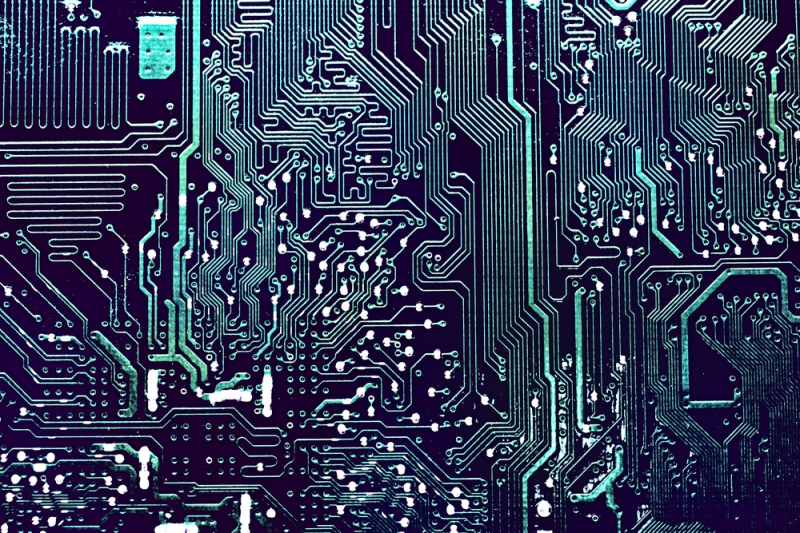
How did it feel to start a company given the state of the global economy?
I am about to find out, I think, as the crisis is yet to strike us. Although the macroeconomic situation is not as important for hardware-oriented startups. For programming startups it’s not about the idea, it’s about how you bring it to life. There are 20 food delivery startups of which one will become the first and get all the money, then there will be the second best, and the others will die. Hardware startups are different: there are two main types. The first one is a service one, which doesn’t have a main idea but is there to serve the existing market and concept. The second is one chasing after an idea, which can be crazy and pointless or it can be brilliant. They require a lot of resources and time. My consulting business is the first type, while my startup is the second one.
Life in the USA

You’ve been in the USA for 20 years. What were the things you had to get used to?
For myself, I decided that people have to live in a monastery of their own spirit; they have to create the practices and lifestyle convenient to them personally regardless of what is happening in the society around them, its standards and beliefs. You can fight against the whole world on your own and win – it is actually not that hard and it happens often. But everything has a price – I lead a rather lonesome life, even though I have friends, mostly from different jobs. And every country offers its own opportunities, while other things will be impractical there.
There are actually many possibilities in the US. But I find living in Japan more comfortable. In Russia, it is fairly impossible to be a hardware developer because there is no industry, but there are prospects for a programmer.
And why do you consider Japan more comfortable?
I think it has to do with manners. I also like Japanese design, parks, and their style. Engineers are treated better in Japan. In the US they are still often scorned…

But to us, the USA is first and foremost Steve Jobs, Bill Gates, IBM, Boeing, General Electric…
It’s not like that for Americans. Ten years ago 90% of their PhD students were from China and India. The situation is now changing due to political powerplay.
Who are the CEOs of major companies? At Seagate, it was a man from Goldman Sachs. A classic financial expert who fired the engineer who founded the company and all of his people. In the US, even first-level managers rarely have engineering experience. Their job is not to create something new but to choose one idea out of the existing five and then promote it within the company. Engineers are deemed to be subjective, they are believed to always choose something they have worked on themselves. In my experience, it is often true. Moreover, there are many old grudges between engineers over who stole whose idea, so you can make one of them the head and everyone else will leave the company.
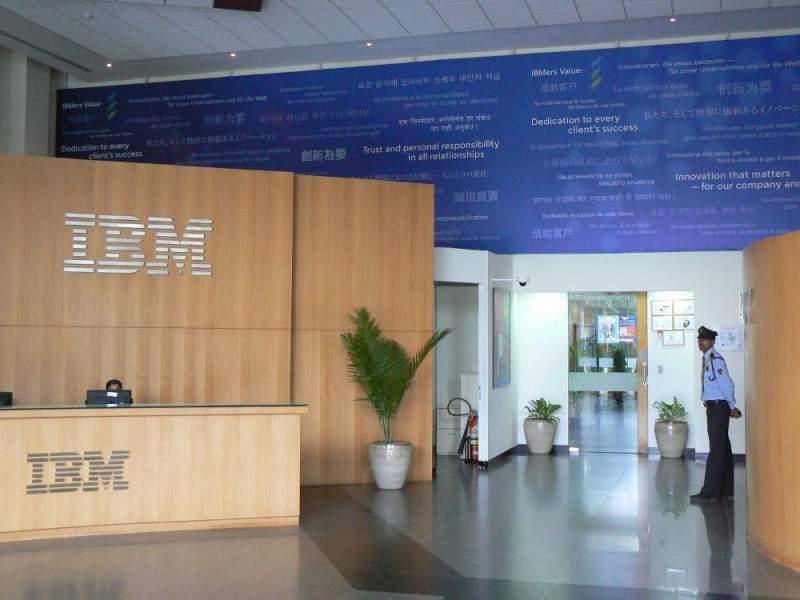
As far as I know, you are also interested in the history of weapons and write books on the topic.
There are a couple of things I am proud of in this field, though not many people believe me. I have created the main classification system for weapons of the Middle East, excluding the Arabian Peninsula. I have made a contribution in classifying the weapons of the Caucasus. All in all, I have published five books, two of which I am particularly proud of, and I am now working on a book on Japanese weapons.
It’s a rather unusual hobby for a physicist.
Naturally, I wasn’t welcomed well by the community. In my reviews, they often say that it must be some old Moscow professor translating his books into English.
Nevertheless, I would like to say that major contributions to this field until the 1930s were made by engineers.
I think that studying weapons in a situation when there are not so many publications – it’s first and foremost the ability to make decisions when there is a lot of missing or dubious data. It’s a rather technical problem.

As a conclusion, what piece of advice can you give our students given your experience in different fields?
Pardon me for being dramatic, but: first of all, find a trait in your personality that hinders your progress and try to fix it. Don’t be scared by challenges. When you tackle them early, they muffle your feelings and then it all becomes easier.
Don’t despair. Even if you did something outstanding today, it doesn’t mean that you will harvest the results tomorrow. You are likely to first face envy and hatred. But you have to keep working. Don’t be afraid. Wherever you go, you will be told that there are no prospects in that company, that you have to be a genius and work 120 hours a week. In all actuality, we are all human, and there are not so many hardworking and smart people. In any industry and company, you can get somewhere – you just need time and effort.



